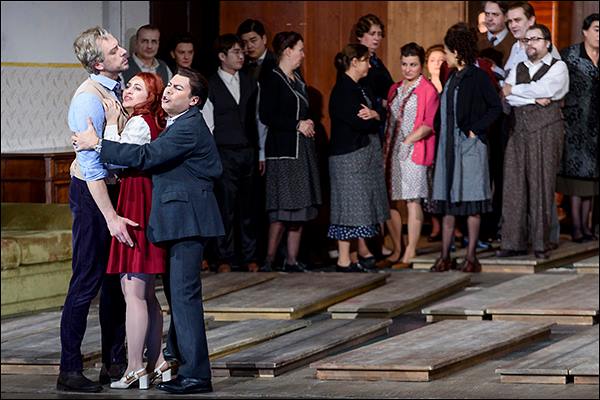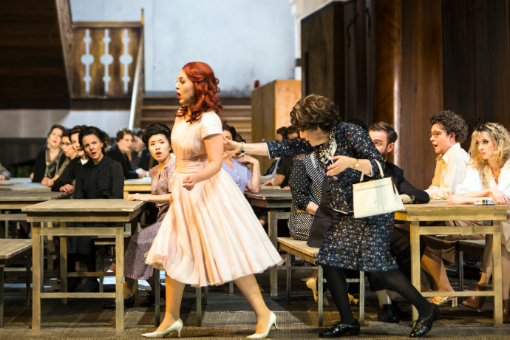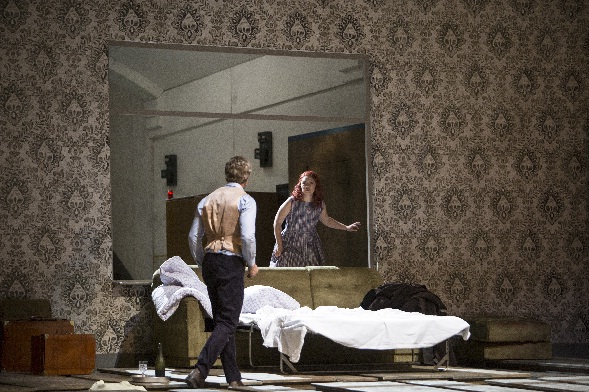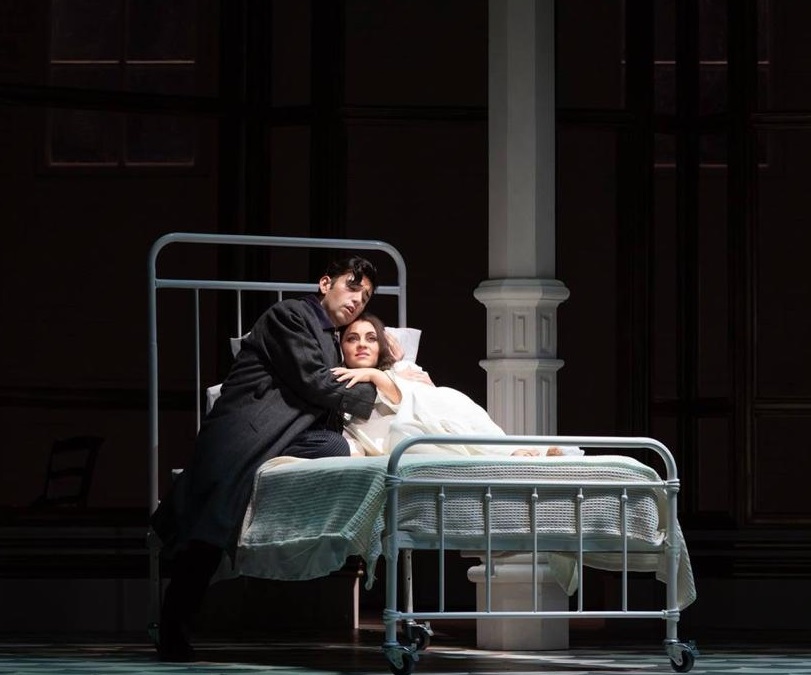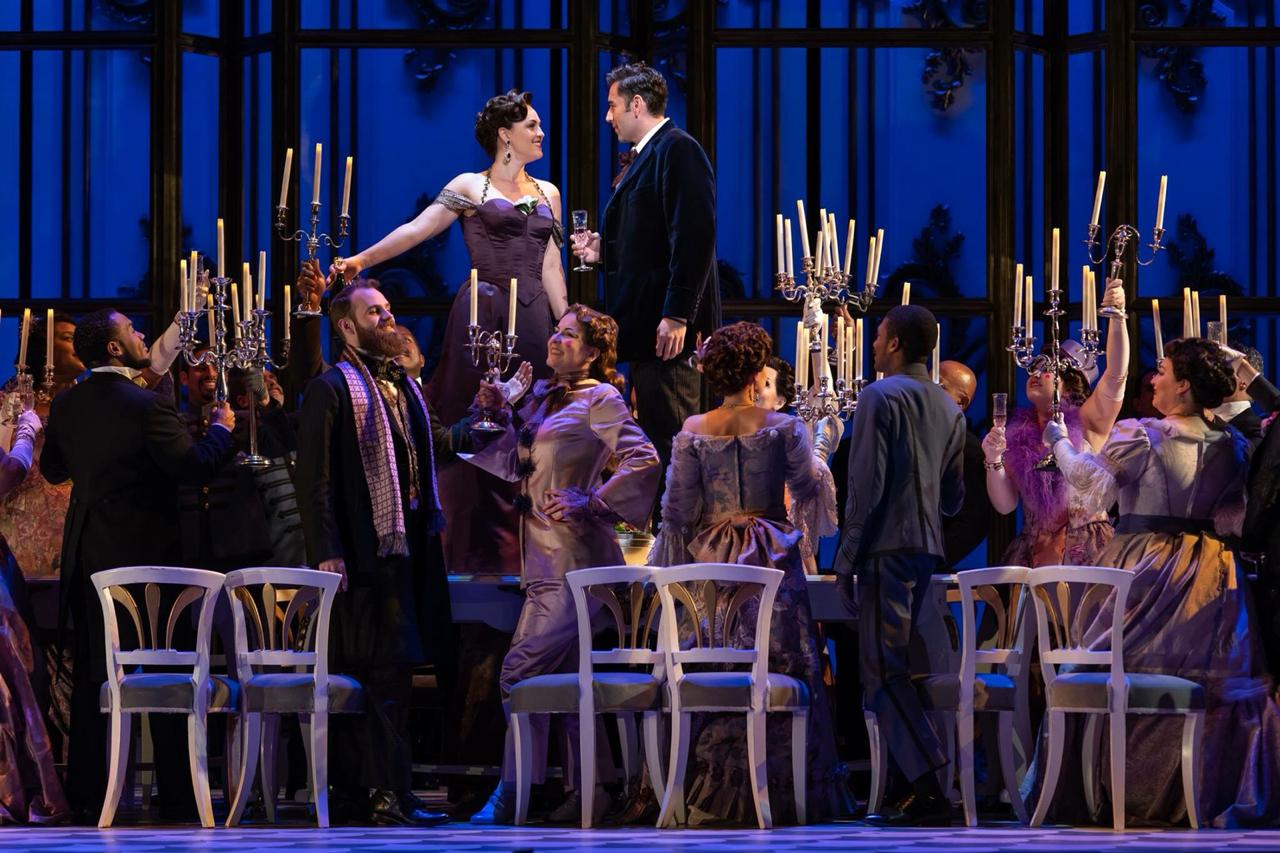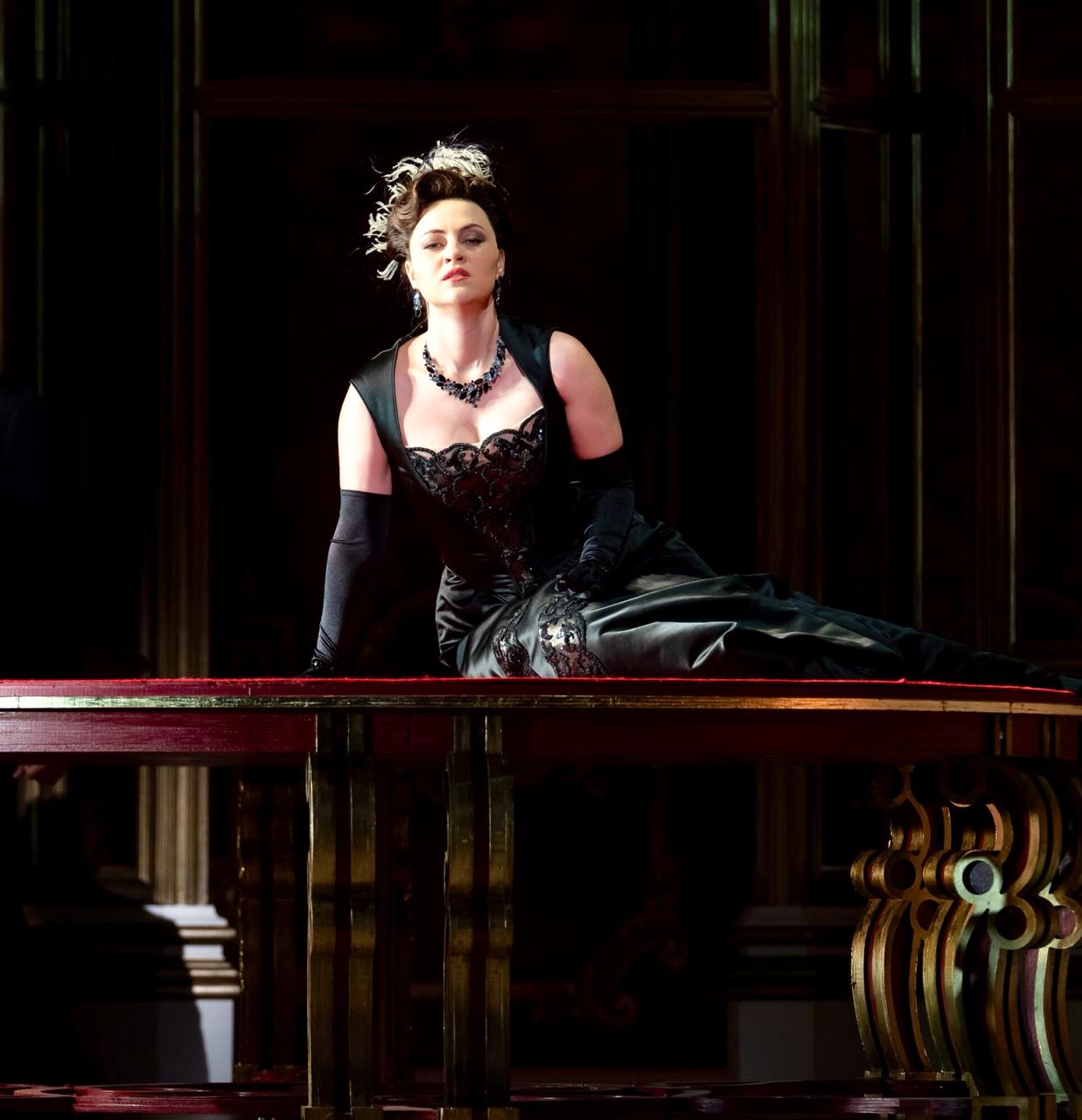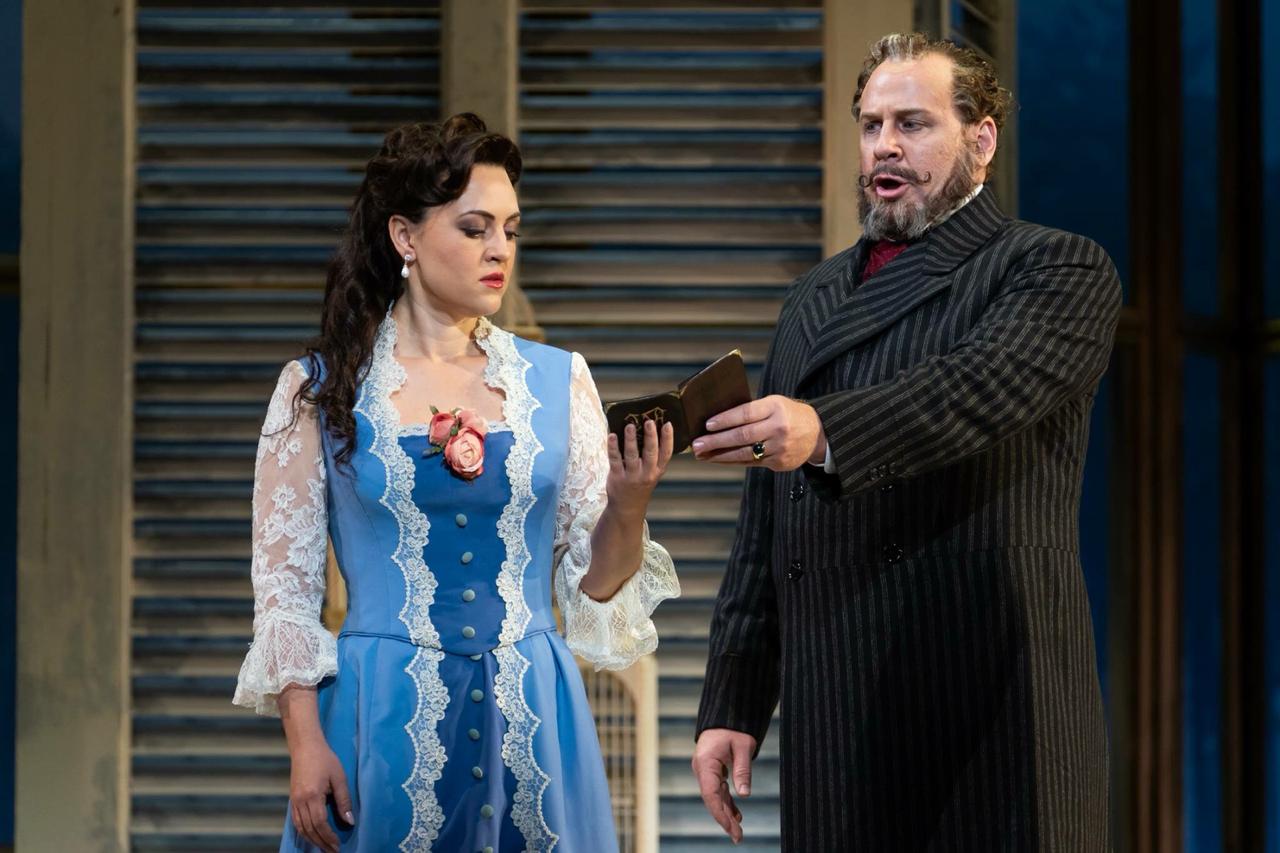Russian soprano Venera Gimadieva, making her Washington debut, was a stunning Violetta. With her tall slender figure and big expressive eyes, she captured attention by her subtle gestures, a turn of her head, and body postures, reacting to others’ words and actions. Her soprano was clear and penetrating without excessive vibrato. She never forced her voice, nor resorted to flashy displays of coloratura. Gimadieva can sing long lyrical lines with continuous breath, quiet composure and absolute stillness, and her high notes opened with radiant beauty and floated into air above the orchestra with seemingly no effort, always hitting the note in the center without sliding up. Her Italian diction was exemplary, and her death scene was most memorable as her dying wish for Alfredo’s happiness came through with poignancy. There was not a dry eye in the house.
























































